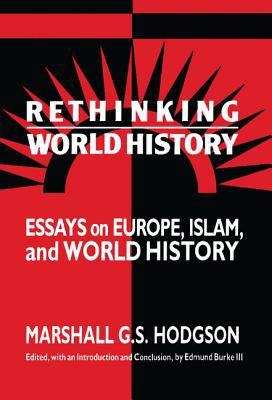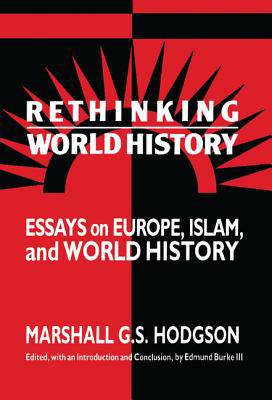
- Afhalen na 1 uur in een winkel met voorraad
- Gratis thuislevering in België vanaf € 30
- Ruim aanbod met 7 miljoen producten
- Afhalen na 1 uur in een winkel met voorraad
- Gratis thuislevering in België vanaf € 30
- Ruim aanbod met 7 miljoen producten
Zoeken
€ 158,95
+ 317 punten
Omschrijving
Is the history of the modern world the history of Europe writ large? Or is it possible to situate the history of modernity as a world historical process apart from its origins in Western Europe? In Part One of this posthumous collection of essays, Marshall G.S. Hodgson, a former professor of history at the University of Chicago, challenges adherents of both Eurocentrism and multiculturalism to rethink the place of Europe in world history. He argues that the line that connects Ancient Greeks to the Renaissance to modern times is an optical illusion, and that a global and Asia-centered history can better locate the European experience in the shared histories of humanity. In Part Two of the work Hodgson shifts the focus and in a parallel move seeks to locate the history of Islamic civilization in a world historical framework. Finally, in Part Three he argues that in the end there is but one history--global history--and that all partial or privileged accounts must necessarily be resituated in a world historical context. The book also includes an introduction by the editor, Edmund Burke III, contextualizing Hodgson's work in world history and Islamic history.
Specificaties
Betrokkenen
- Auteur(s):
- Uitgeverij:
Inhoud
- Aantal bladzijden:
- 354
- Taal:
- Engels
- Reeks:
Eigenschappen
- Productcode (EAN):
- 9780521432535
- Verschijningsdatum:
- 28/05/1993
- Uitvoering:
- Hardcover
- Formaat:
- Genaaid
- Afmetingen:
- 157 mm x 234 mm
- Gewicht:
- 589 g

Alleen bij Standaard Boekhandel
+ 317 punten op je klantenkaart van Standaard Boekhandel
Beoordelingen
We publiceren alleen reviews die voldoen aan de voorwaarden voor reviews. Bekijk onze voorwaarden voor reviews.











